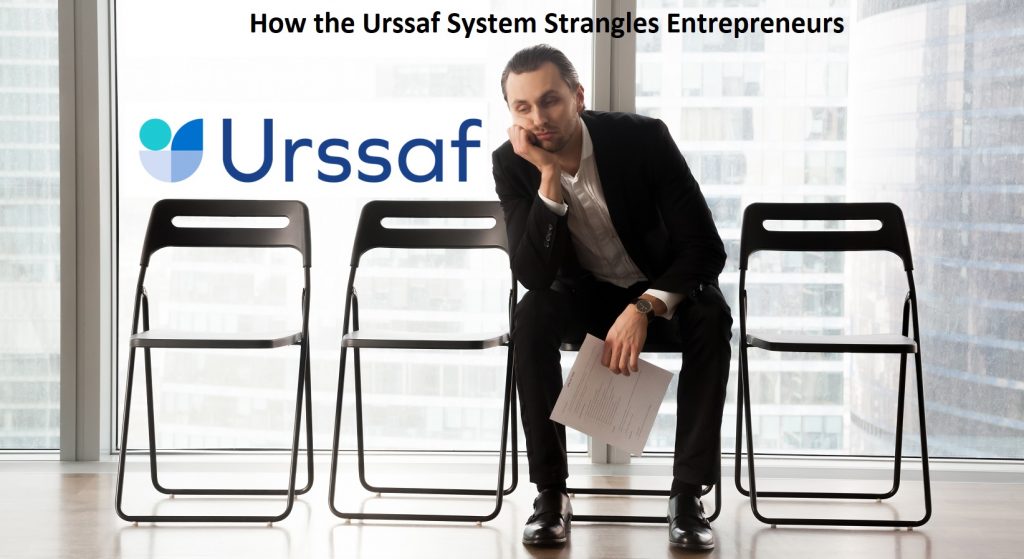How the French Social Security System Strangles Entrepreneurs
Small businesses are the backbone of the economy, yet they suffer the most under the rigid and oppressive URSSAF system. While large corporations benefit from tax advantages and accounting loopholes, smaller entities such as restaurants, local shops, and artisans struggle daily against an inflexible and often unjust bureaucracy. Many entrepreneurs live in constant fear of audits and sanctions, as even the smallest mistake can lead to crushing fines that threaten their survival.
The Daily Struggles of Small Entrepreneurs
Running a small business in France means working 12 to 14 hours a day, seven days a week, just to survive. Owners must wear many hats—manager, accountant, HR, customer service—while juggling endless administrative formalities. Hiring employees is a true challenge due to high social charges and strict labor laws, and retaining them is even harder. Some entrepreneurs face threats from employees demanding unjust conditions, further increasing their stress.
A café owner in Bordeaux explained how unpredictable URSSAF inspections and excessive charges make managing staff nearly impossible. Despite regular payments, a minor payroll error led to a massive fine, forcing the establishment to reduce its hours and lay off employees. Meanwhile, large chains benefit from tax exemptions and flexibility in labor management.
In a particularly dramatic case, a restaurant had to shut down permanently after an employee falsely accused it of misconduct. The employee, whose trial period contract was not extended, sent multiple letters to URSSAF, the police, and other regulatory bodies, falsely accusing the restaurant of mistreatment and financial fraud. The audits, legal fees, and damage to the reputation destroyed the business. This case highlights that entrepreneurs not only have to manage bureaucracy but also protect themselves from false accusations that can ruin their professional lives.
A One-Sided Control System
URSSAF claims to fight undeclared work and fraud, but its approach is imbalanced. Inspections primarily target small businesses for minor errors, while large companies exploit legal loopholes to avoid contributions without facing scrutiny.
A bakery in Marseille, already struggling with rising energy costs and payroll charges, received an unexpected penalty of €15,000 after an audit revealed a documentation error regarding working hours. The owner, overwhelmed by administrative formalities, made a simple accounting mistake. Rather than helping correct the error, URSSAF imposed a heavy fine, forcing the artisan to lay off staff. Meanwhile, a bakery chain with franchises across France took advantage of tax credits and exemptions, avoiding any severe inspections.
Abusive Reductions and Poor Recovery of Real Fraud
According to the 2024 URSSAF report, audits for undeclared work resulted in €1.6 billion in recoveries, but only 10% of this amount was actually collected. This shows that URSSAF aggressively penalizes small businesses on paper but struggles to tackle massive fraud by large corporations.
For a small business, an unjust audit can be devastating. Unlike large companies with specialized lawyers to contest penalties, small entrepreneurs often have no choice but to pay or go bankrupt.
A small restaurant in Lyon, in business for over ten years, faced a tax adjustment of €20,000 due to a misclassification of an employment contract. The operator, who had always paid taxes on time, found himself trapped, unable to defend himself against the complex legal system and exorbitant legal fees. At the same time, a large restaurant chain was able to reduce its taxes through financial arrangements, illustrating this two-tier justice system.
A System Favoring Large Businesses
URSSAF insists on the need to recover unpaid contributions, but large businesses continue to use legal tax optimization strategies to evade them. Worse still, they benefit from subsidies and exemptions in exchange for often-unkept promises of jobs.
A small clothing store in Paris had to shut down after URSSAF refused to grant a payment adjustment, leaving the owner with no solution. Meanwhile, a large international retailer benefited from millions of euros in tax advantages despite massive offshoring of production.
URSSAF Needs Urgent Reform
In its current form, URSSAF acts as a punitive system that suffocates small businesses while allowing large companies to bypass the rules. Urgent reforms are needed to:
- Introduce more flexible regulations to support small businesses rather than penalize them.
- Implement a fairer tax system to prevent large businesses from exploiting the system’s loopholes.
- Strengthen legal protection for SMEs against abusive audits.
Small entrepreneurs are not asking to be exempt from their obligations—they simply want to stop being easy targets while large groups escape audits and take advantage of lax policies. Without reform, many local businesses will disappear, paving the way for industrial monopolies.
SMEs #Entrepreneurs #France #Taxes #URSSAF #Economy

